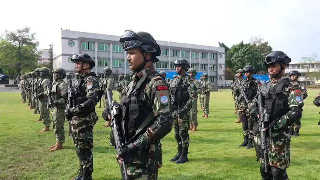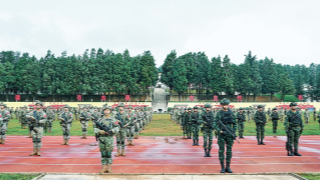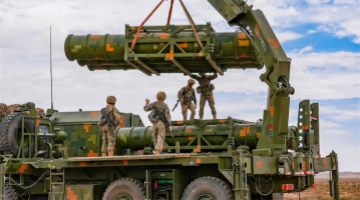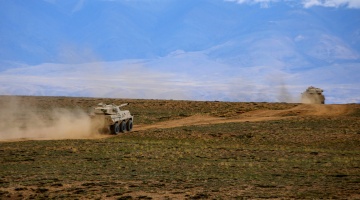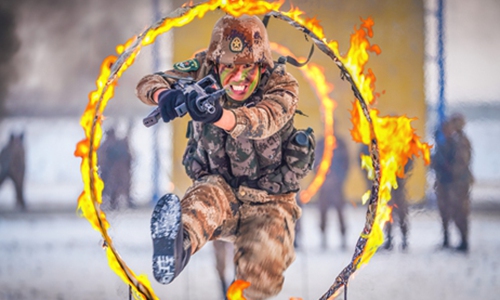
A soldier with the PLA's Xinjiang Military Command jumps through fiery hoops during training in -10 C weather in Shihezi, Northwest China's Xinjiang Uyghur Autonomous Region on Tuesday. Photo: VCG
China showed determination and confidence in anti-terrorism, as well as the improvement of China's emergency counter-terrorism capability, a Chinese expert said Monday after military media released a clip of China's seven-day counter-terrorism exercise in a grueling cold desert in Northwest China's Xinjiang Uyghur Autonomous Region.
The clip, released by js7tv.cn, a website affiliated with the People's Liberation Army (PLA), introduced the intensive cross-nights exercise participated in by an elite special force contingent of the People's Armed Police in Gobi desert in Xinjiang.
Aiming at enhancing the combat skills of soldiers under grueling conditions in a simulated realistic environment, soldiers finished a range of tasks including positioning and searching, combat casualty care, squad tactics and crawling in the daytime, as well as physical training features like a 10-kilometer fully armed raid and carrying 30-kilogram loads.
In the night operation, soldiers were divided into three squads in charge of reconnaissance, sniping and assault.
Under the cover of flash bang, each squad broke into the target building at the same time and successfully neutralized two imaginary "violent terrorists."
Zhu Yongbiao, assistant director of Lanzhou University's Institute of Central Asia Studies, told the Global Times that Xinjiang, with a complex religion and ethnic situation, has always been at the forefront of China's combat against terrorism, adding difficulty to anti-terrorism works.
According to incomplete data, from 1990 to 2016, Xinjiang endured thousands of terrorist attacks that killed large numbers of innocent people and hundreds of police officers.
Zhao said that the drill shows Xinjiang's determination and confidence in anti-terrorism, as well as the improvement of the region's counter-terrorism capability in an emergency.
In early December, CGTN, China's state broadcaster, released a one-hour-long documentary, Fighting Terrorism in Xinjiang.
It begins with explicating the formative years when extremism began evolving in Xinjiang, followed by the grueling fight against terrorism. It also illustrated the interactions of terrorists with overseas forces accompanied by audio and video evidence. The documentary winds up highlighting international cooperation on anti-terrorism.
According to the white paper released by the Information Office of the State Council, no terrorism-related incidents have taken place in Xinjiang for nearly three years.
?



